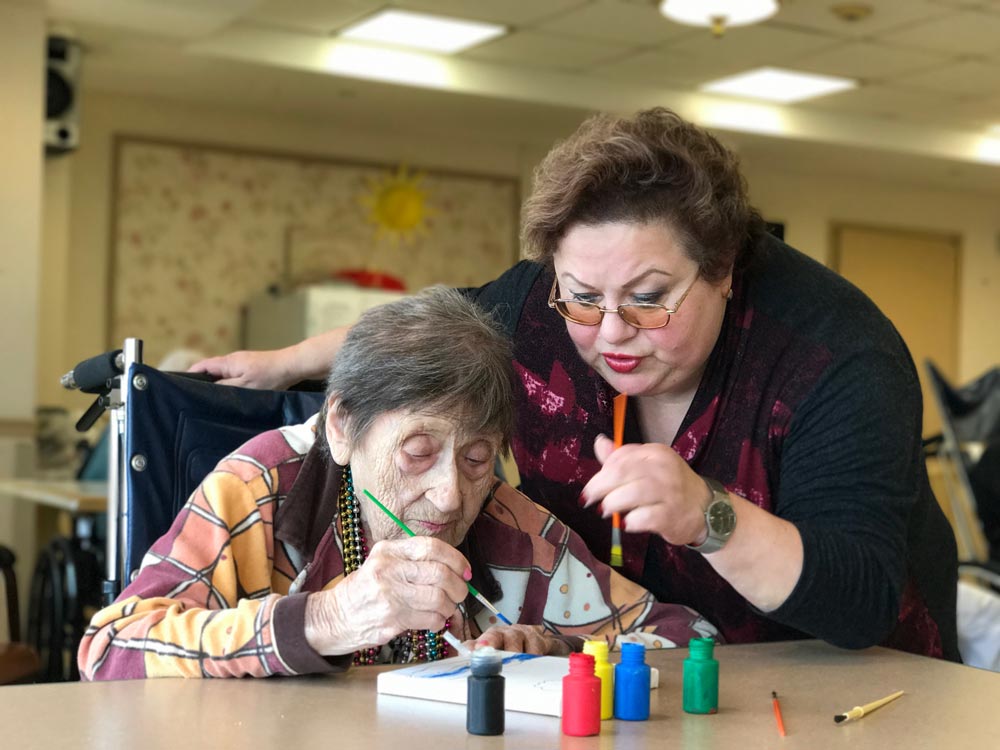Just How to Provide Personalized and meaningful Dementia Treatment
The stipulation of purposeful and personalized dementia care requires a nuanced understanding of each individual's distinct history and preferences. Treatment methods must be tailored to engage the individual in ways that reverberate with their previous experiences, thus cultivating emotional connections and enhancing total wellness. Establishing count on with thoughtful and constant communications is vital for producing a secure and encouraging environment. As we discover the complexities of effective communication and the important role of family members involvement, it becomes clear that the trip toward personalized treatment holds both tests and extensive incentives.
Comprehending Dementia Individuality

Care companies must evaluate cognitive abilities, emotional states, and behavior patterns to develop customized treatment strategies. This might include adjusting interaction styles, employing acquainted regimens, and using significant activities that reverberate with the person's previous experiences. For example, engaging an individual with an enthusiasm for music through music activities might evoke favorable memories and enhance emotional wellness.
Moreover, understanding originality cultivates a compassionate approach that respects the dignity and freedom of those dealing with mental deterioration. It urges caretakers to pay attention proactively, observe behavior hints, and continue to be versatile in their caregiving techniques (memory care facilities charlotte). By prioritizing uniqueness, caretakers can not only boost the lifestyle for those with dementia but likewise develop an extra extensive understanding of their unique point of views, eventually leading to more compassionate and effective treatment
Building Count On and Relationship
Establishing trust and relationship is fundamental in mental deterioration treatment, as it produces a helpful and risk-free environment for individuals affected by the problem. Structure these connections requires consistent, compassionate interactions that focus on the requirements and sensations of the individual. Caretakers should approach communications with empathy, acknowledging the unique obstacles encountered by those with mental deterioration, including amnesia, complication, and psychological distress.
Reliable interaction is crucial in this process. Caretakers ought to use clear, easy language and non-verbal signs to convey understanding and assistance. Active paying attention shows regard and recognition, allowing individuals to express themselves without anxiety of judgment. Furthermore, maintaining a tranquil behavior can help minimize anxiety, cultivating a sense of safety.
Establishing a routine can additionally improve trust. Experience with daily activities and caretakers promotes a feeling of stability, enabling individuals to feel even more comfortable. It is important to engage with individuals on a personal degree, putting in the time to find out about their biography, choices, and passions. By doing so, caretakers strengthen the individual's identification, promoting dignity and regard, inevitably causing more powerful, much more purposeful partnerships in the context of mental deterioration care.
Tailoring Activities and Engagement
Involving individuals with dementia through customized tasks can significantly enhance their lifestyle and promote a deeper link between caregivers and those in their care. Customization is crucial, as it acknowledges the one-of-a-kind histories, passions, and capabilities of each individual. Tasks ought to be created to boost cognitive functions, promote physical activity, and urge social interaction, all while staying satisfying and meeting.
To customize tasks effectively, it is critical to assess the individual's preferences and cognitive capacities. Some may find joy in gardening, while others could value music or art. Easy, familiar jobs can stimulate positive memories and provide a feeling of success. Additionally, including elements of regimen can supply comfort and stability, permitting individuals to involve with tasks more with confidence.
Caretakers can boost interaction by participating along with the individuals, promoting an interactive and supportive environment. It is also important to remain flexible and adaptable, changing activities as required based on the individual's power levels and state of mind. Eventually, meaningful involvement through tailored tasks not only uplifts people with dementia but likewise enhances the caretaker partnership, promoting shared satisfaction and understanding.
Effective Communication Methods
Effective communication is essential in dementia care, as it cultivates a sense of link and understanding between caretakers and people experiencing cognitive decrease. Using reliable communication strategies can substantially enhance the high quality of interactions and decrease frustration for both celebrations.
To start with, using easy, clear language is essential. Brief sentences and familiar words assist individuals understand and respond much better. Furthermore, keeping a calm and favorable tone can produce a calming atmosphere, which is essential for people that may feel baffled or anxious.
Non-verbal communication plays a significant function too. Caretakers need to take note of body language, face expressions, and gestures, as these signs can commonly communicate more than words - memory care facility charlotte. Developing eye get in touch with and making use of gentle touch can additionally enhance links and convey empathy
Energetic listening is one more crucial element. Caregivers ought to be conscientious, permitting individuals to express themselves totally, even if their speech is fragmented or my response unclear. This shows respect and encourages much more open interaction.
Last but not least, confirming feelings and experiences is important. Recognizing emotions, despite their basis in truth, can supply convenience and reinforce the caregiver-individual connection, promoting a more encouraging ambience.
Supporting Household Participation
Family involvement plays a substantial function in the general care and support of people with dementia. Engaging household participants produces a collective atmosphere that enhances the quality of care, fosters emotional connections, and makes sure that the special demands of the person are satisfied. Family members typically possess invaluable insights right into the individual's background, choices, and actions, which can be vital in creating customized treatment approaches.

Additionally, member of the family can be motivated to join daily treatment tasks, such as taking part in significant conversations or aiding with familiar regimens. This not only aids suffer the person's sense of identification but likewise enhances familial bonds. Inevitably, by fostering a comprehensive method that values family contributions, care service providers can enhance the overall experience for both individuals with dementia and their liked ones.
Conclusion
In final thought, supplying meaningful and personalized dementia care requires a detailed understanding of each person's special history and choices. Jointly, these strategies add to enhanced top quality of life for individuals with mental deterioration.
The arrangement of meaningful and her response tailored dementia care calls for a nuanced understanding of each individual's one-of-a-kind history and preferences. By doing so, caretakers reinforce the person's identification, advertising self-respect and respect, eventually leading to stronger, more meaningful relationships in the context of mental deterioration treatment.
Engaging people with mental deterioration through tailored tasks can dramatically enhance their quality of life and foster a much deeper link between caregivers and those in their treatment.Family participation plays a substantial duty in the general treatment and support of individuals with mental deterioration. Ultimately, by promoting a comprehensive approach that values family contributions, care suppliers can enhance the total experience for both people with mental deterioration and their loved Check This Out ones.